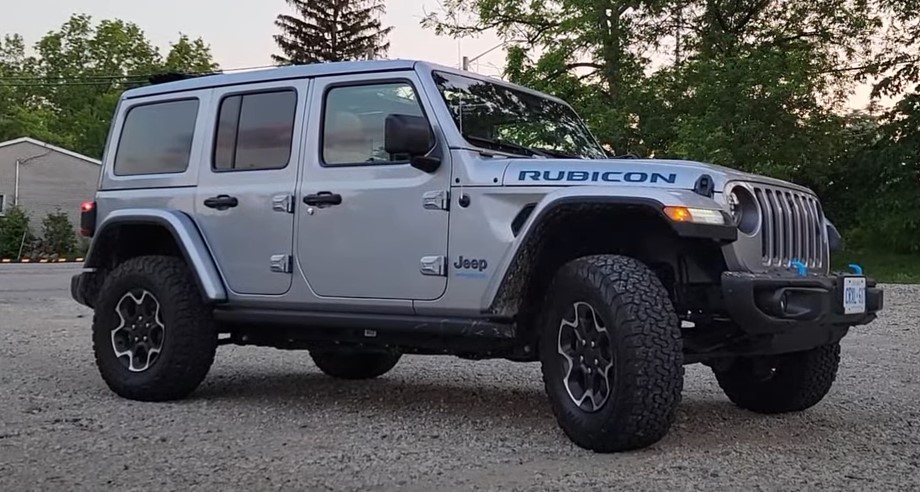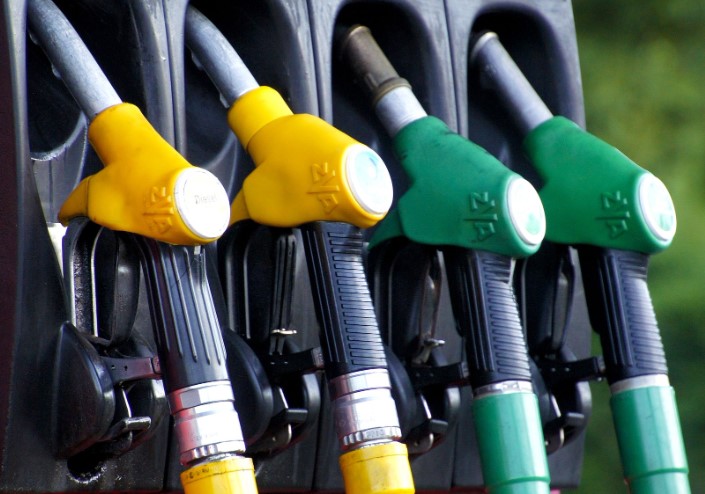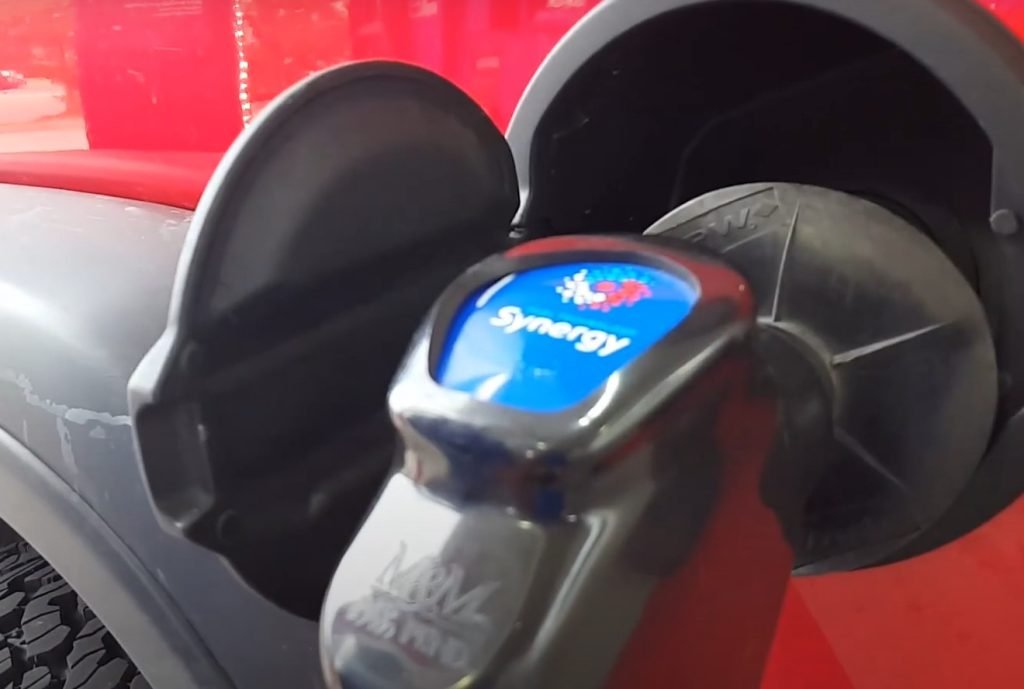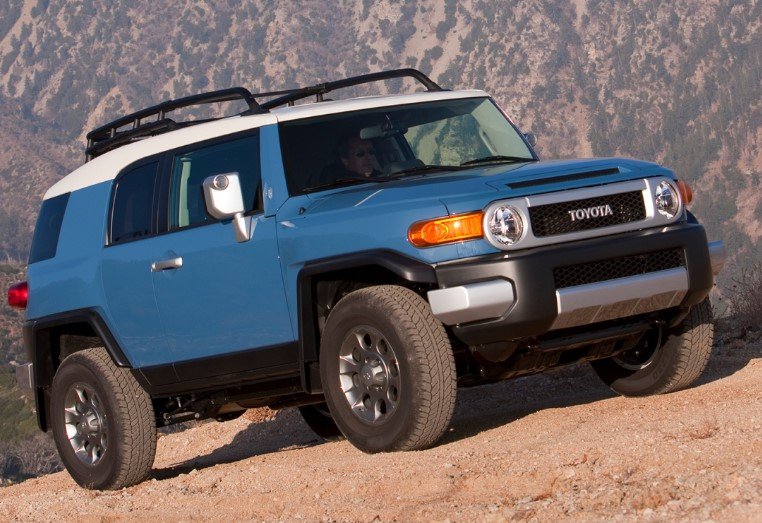Jeep SUVs and their crossovers are famous for their excellent off-roading capacity and smooth performance on every ride. Nonetheless, the performance of Jeep largely depends on the fuel type you use. Hearing it you may wonder, “What type of fuel to use for Jeep? Does Jeep take regular gas or premium gas?
The use of regular and premium gas can significantly impact the Jeep’s performance. However, whether or not Jeep takes regular gas, depends on its engine model. Typically, Jeep recommends using the regular 87-octane gas for their 3.6-L V6 and 6.4-L V8 engines. On the other hand, its turbocharged 2.0L engine takes premium gas.
As you see, Jeep’s compatibility with regular or premium gas depends on its engine models. Also, with few modifications, Jeep owners may use the premium unleaded gasoline in its all models to boost the performance, especially on off-roading. So, let’s see Jeep gas compatibility and tips for the best utilization of the gasoline in Jeep.
Fuel Types for Jeep
For automobile owners, they need to fuel up the engine regularly, almost daily. And for fueling up the car or SUV, including Jeep, there are multiple options:
- Diesel
- Regular gasoline
- Premium Gasoline
Regular gasoline is often referred to as “unleaded” gasoline. Also, it is the standard fuel type for most vehicles. Its octane rating is typically 87. Mostly, regular gasoline is popular due to its affordability. Its affordability, however, forces you to compromise with the driving performance. If you ride on off-roads such as snow or mud and even go on treks, regular gasoline may not be a good choice.
Regular gasoline with an 87-octane rating fails to reach the peak torque and engine capacity. So, you won’t receive the best performance from Jeep SUVs and crossovers.
However, alongside regular gasoline, premium gasoline, and diesel exist too. Premium gasoline is mainly distinguished by its higher octane rating. Its octane rating is from 91 to 93, which delivers better fuel efficiency. So, the premium gasoline caters to vehicles with advanced engine requirements.
Diesel fuel, on the other hand, serves an entirely different category. You will predominantly see its uses in diesel engines.

Does Jeep Take Regular Gas?
Jeep is one of the most celebrated names in the realm of off-road vehicles. Plus, it offers a diverse lineup of models, each with its unique characteristics.
Moreover, its models such as the iconic Wrangler, the family-oriented Cherokee, and the luxurious Grand Cherokee have different fuel requirements. It leads to a crucial question: can all these Jeep models efficiently operate on regular gasoline?
The answer is no. Not all Jeeps can take regular gas with its factory specifications. Jeep engines made for gasoline can run on regular gas for most models. On the other hand, a few Jeep models run on premium unleaded gasoline. However, when you use regular gas for models specified for premium unleaded gas, you will compromise with the engine and fuel performance.
For instance, the Jeep Wrangler includes four different engine models. And two of them use regular gas, as factory settings.
- Regular unleaded gasoline: 3.6-L V6 engine and 6.4-L V8 engine
- Premium unleaded gasoline: Turbocharged 2.0-L engine (Four-cylinder)
- Diesel: Turbocharged 3.0-L V6 engine
As the list shows, the Jeep Wrangler primarily uses unleaded gasoline of 87-rating. All models before 2017 had the same gasoline requirements. Since 2018, Jeep has introduced the turbocharged engine with unleaded premium gasoline.
On the other hand, both the 2022 and 2023 versions of Jeep Grand Cherokee use regular 87-rated gasoline. So, you see that Jeep mainly recommends putting in regular gas for most models. You can use the regular gas instead of the premium unleaded gas to save a few bucks.
Therefore, Jeep’s stance on fuel requirements varies across its models. Of course, some Jeeps function optimally on regular gasoline. Nonetheless, a few models may recommend or even require higher-octane fuels. Therefore, it is paramount for Jeep owners to consult their vehicle’s manual and strictly adhere to the manufacturer’s guidelines regarding fuel types.
Discontinuation of Jeep Diesel Engine:
As we discuss Jeep’s compatibility with regular or premium gasoline, we must also talk about its diesel engine. Previously, Jeep used an Eco-Diesel engine for its many models, including the Jeep EcoDiesel Wrangler.
However, in 2024 Jeep will stop making diesel engines anymore. So, you will need to buy used Jeep SUVs from 2024, if you want the best performance of its diesel engine.
Jeep Fuel Efficiency Comparison
Jeep as one of the most premium and sought-after SUVs, is a fuel-hungry machine. So, before choosing the right fuel for the Jeep, you must understand its fuel efficiency. It will help you decide whether to use the affordable regular or expensive premium gasoline for it.
| Jeep Model | City MPG Range | Highway MPG Range |
| Jeep Wrangler | 17 – 24 mpg | 21 – 29 mpg |
| Jeep Cherokee | 19 – 23 mpg | 26 – 31 mpg |
| Jeep Grand Cherokee | 16 – 21 mpg | 22 – 29 mpg |
| Jeep Compass | 22 – 23 mpg | 30 – 32 mpg |
| Jeep Renegade | 21 – 24 mpg | 26 – 32 mpg |
As you see, Jeep mostly delivers 17-22 MPG in cities and 22-30 MPG on highways. So, using premium unleaded gasoline can be expensive, particularly for city rides. It’s understandable since Jeep vehicles are known for their off-road capability and ruggedness.

Therefore, they may not always be the most fuel-efficient vehicles on the market. It primarily happens due to their focus on utility and performance. You may read this about How Many Quarts of Oil Does a 5.3 Take
Benefits of Regular Gasoline
As a Jeep owner, you might find using regular gasoline on your USV quite handy. It’s affordable, available in every pump, and is efficient too.
Cost-Effective:
Regular gasoline is generally more budget-friendly than premium alternatives. For instance, as of October 26, 1-liter regular gasoline is priced at $3.531. On the contrary, the premium unleaded gasoline price is $4.347 per liter. Therefore, on average, you will find 25% to 35% higher pricing for premium gas than the regular ones.
Thereby, the cost savings can be substantial over time. It is especially true if you drive your Jeep frequently and on off-roads. The 4Xe Forums for Jeep users recommend primarily using 87-octane instead of the premium version for all Jeep models.
They only recommend using the premium unleaded gasoline for heavy towing and off-road driving. With regular gasoline, you will enjoy better convenience and affordability.
Widespread Availability:
Regular gasoline can be found at nearly every gas station. Hence, it will ensure more convenience during long journeys. Also, it is helpful in remote areas where premium fuels might be scarce. So, with regular gasoline for Jeep, you don’t need to worry about gas availability and enjoy peace of mind.
Fuel Efficiency:
In reality, most Jeep models can run efficiently on regular gasoline. And the best part is that they do so without sacrificing fuel economy. As a result, you can enjoy decent mileage without the added expense of premium fuels.

Drawbacks of Regular Gasoline:
While regular gas is cost-effective, it severely limits your engine performance. Also, with it, you will experience a knocking noise that might damage the car engine.
Performance Variations:
Using regular gasoline in a Jeep that is specifically designed for premium fuel may lead to reduced performance. The engine may not operate at its full potential, resulting in diminished power and acceleration.
Therefore, you will compromise with the engine torque and strength. It is mostly true when you drive in off-roads frequently. With regular gasoline instead of premium ones, your Jeep will not deliver the performance it promises and it can be a major dissatisfaction for you.
Knocking Noise and problem:
In high-compression engines, the use of regular gasoline can sometimes cause knocking. Knocking is a form of abnormal combustion. It produces a knocking or pinging sound and can potentially harm the engine if not addressed.
When you keep using the regular gasoline without recommendation, the knocking problem gets worse. It will eventually damage the spark plug, engine capacity, oil filter, valve, and pistons. The result will be a complete knock-down of the Jeep engine and it’s costlier than you anticipate.
Manufacturer Recommendations:
Manufacturer’s fuel recommendation is crucial for engine performance and longevity. Also, it may void your warranty for not adhering to the recommended fuel type. You will find that the Jeep model specifies premium or regular fuel for its models in the user manual.
So, using regular gasoline could have financial consequences if it leads to engine issues.
Factors to Consider For Choosing Fuel Type:
The US Department of Energy states that the right fuel type for cars and SUVs is paramount. So, as a Jeep owner, you must consider the crucial factors in deciding on the type of gasoline for your Jeep:
Altitude:
Do you often drive in high-altitude areas? Mostly, high-altitude areas may necessitate higher-octane fuel due to lower air pressure. Also, at the high altitude, the engine undergoes additional pressure and needs to utilize its fuel capacity which can only be available with the premium 91 to 93-rated gasoline.
Engines with higher compression ratios may require it to prevent knocking. So, in such cases, you should always use premium gas.
Terrain:
Many Jeep drivers will frequently engage in off-roading or towing heavy loads. In such cases, your Jeep’s engine might benefit from the extra power and efficiency of the premium gasoline. These situations demand optimal performance and torque that the regular 87-octane rating can’t match.
Driving Habits:
Your driving style and habits can significantly influence your fuel choice. If you primarily use your Jeep for city commuting or light off-road adventures, regular gasoline is more than enough. In cities, you don’t need to rev up the engine performance and capacity so, regular gas is helpful.
However, premium fuel might be more suitable for frequently pushing your Jeep’s limits. So, for trekking and off-roading you can temporarily shift to premium 91-gas from the recommended regular fuel. It won’t harm the engine.
Climate:
Extreme temperatures, whether scorching hot or freezing cold, can affect engine and fuel performance. In extremely hot conditions, for instance, a higher-octane fuel might be necessary. It will prevent the engine from knocking and maintain performance.
Alternatives and Modifications For Better Fuel Efficiency:
Sometimes Jeep owners may not find their vehicle optimized for regular gasoline. It will increase the fuel cost and might even damage the engine components. At such moments, aftermarket modification and fuel conversion can be good alternatives.
Aftermarket Modifications:
With a few aftermarket modifications, you might adapt your Jeep vehicles for regular gasoline use, even if it is not recommended for regular ones. For the modifications, you might choose:
- Adjust the engine’s timing
- Use performance-enhancing additives.
However, during modification be sure to modify the requirements correctly. Or else, it could lead to engine damage in the worst case.
Fuel Conversions
You may even consider converting the Jeep’s engine to run on a different fuel type. The conversion from gasoline to diesel will boost the engine performance and driving smoothness. Although the diesel conversion for Jeep is expensive at $1000 to $10000, it’s worth it for an excellent driving experience. It will, further, boost the engine’s efficiency and its lifespan.
Final Thought
Does Jeep take regular gasoline? Yes, most Jeep models, including the Jeep Wrangler (3.6-L V6 engine and 6.4-L V8 engine) take regular unleaded gas. However, you can use the regular gasoline for the premium gasoline occasionally.
Undoubtedly, regular gasoline offers cost-effective advantages and convenience. Nonetheless, it may not be the optimal choice for all Jeep models. Also, for off-roading and heavy-towing, you should choose premium unleaded gasoline for the best Jeep performance.





